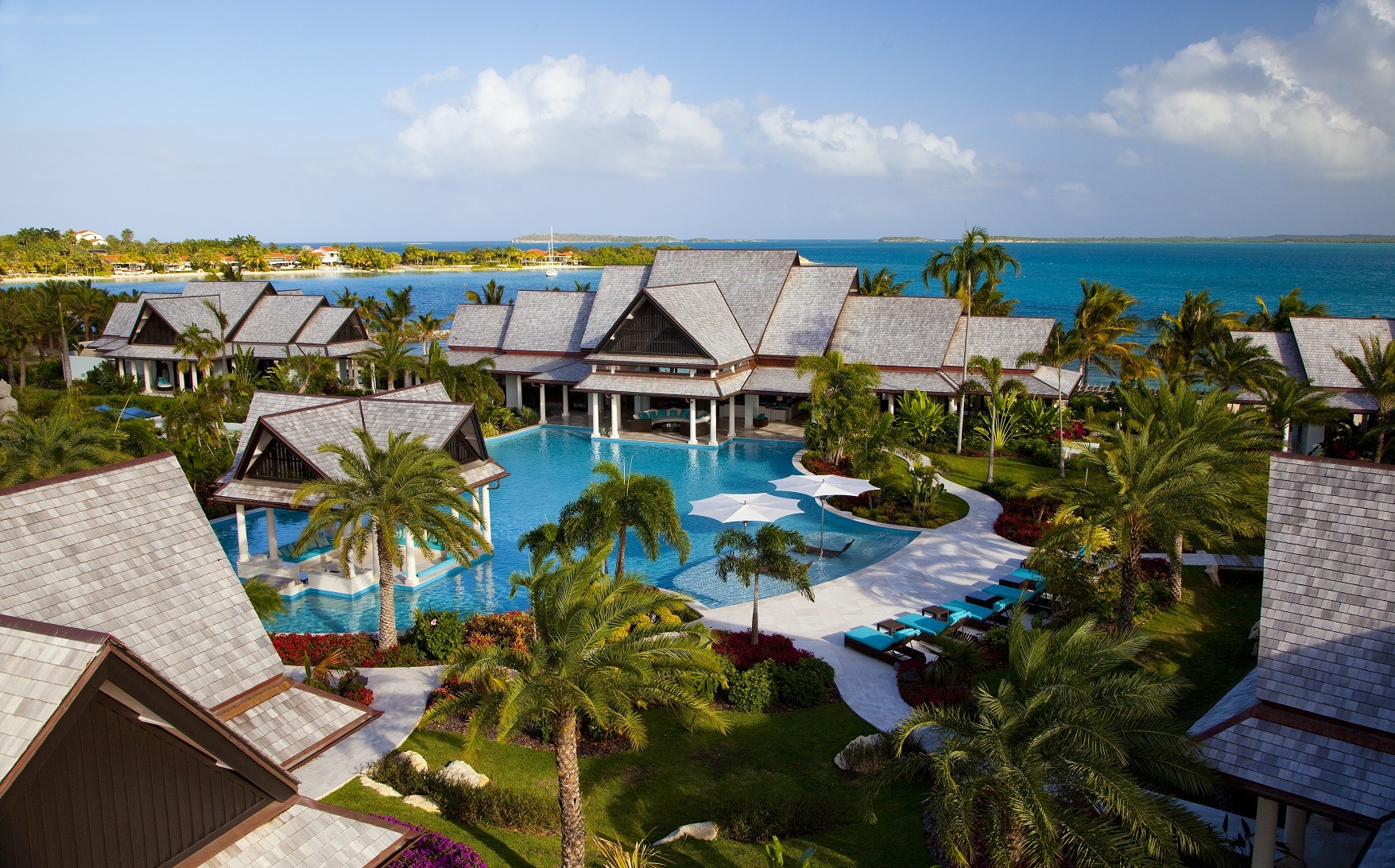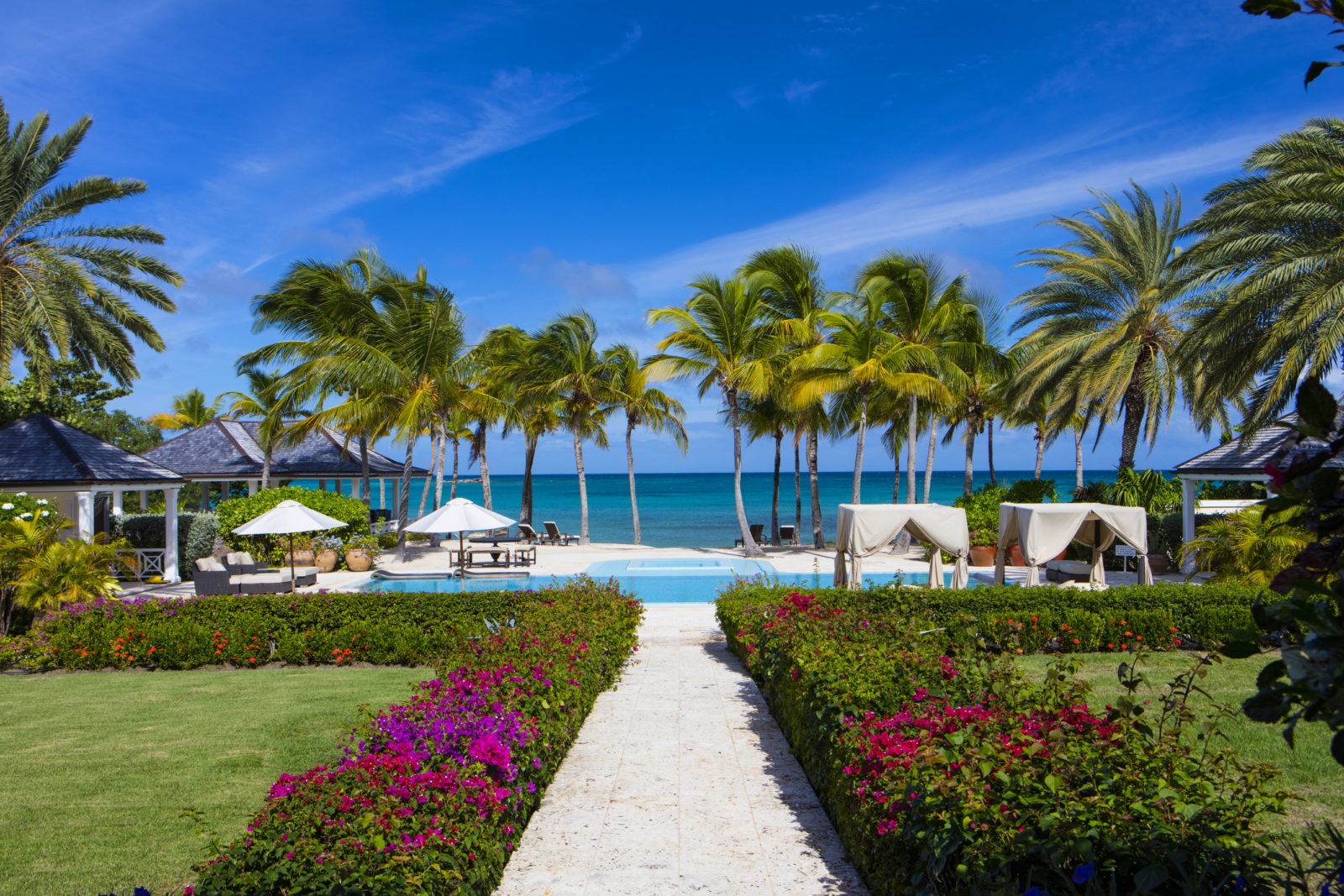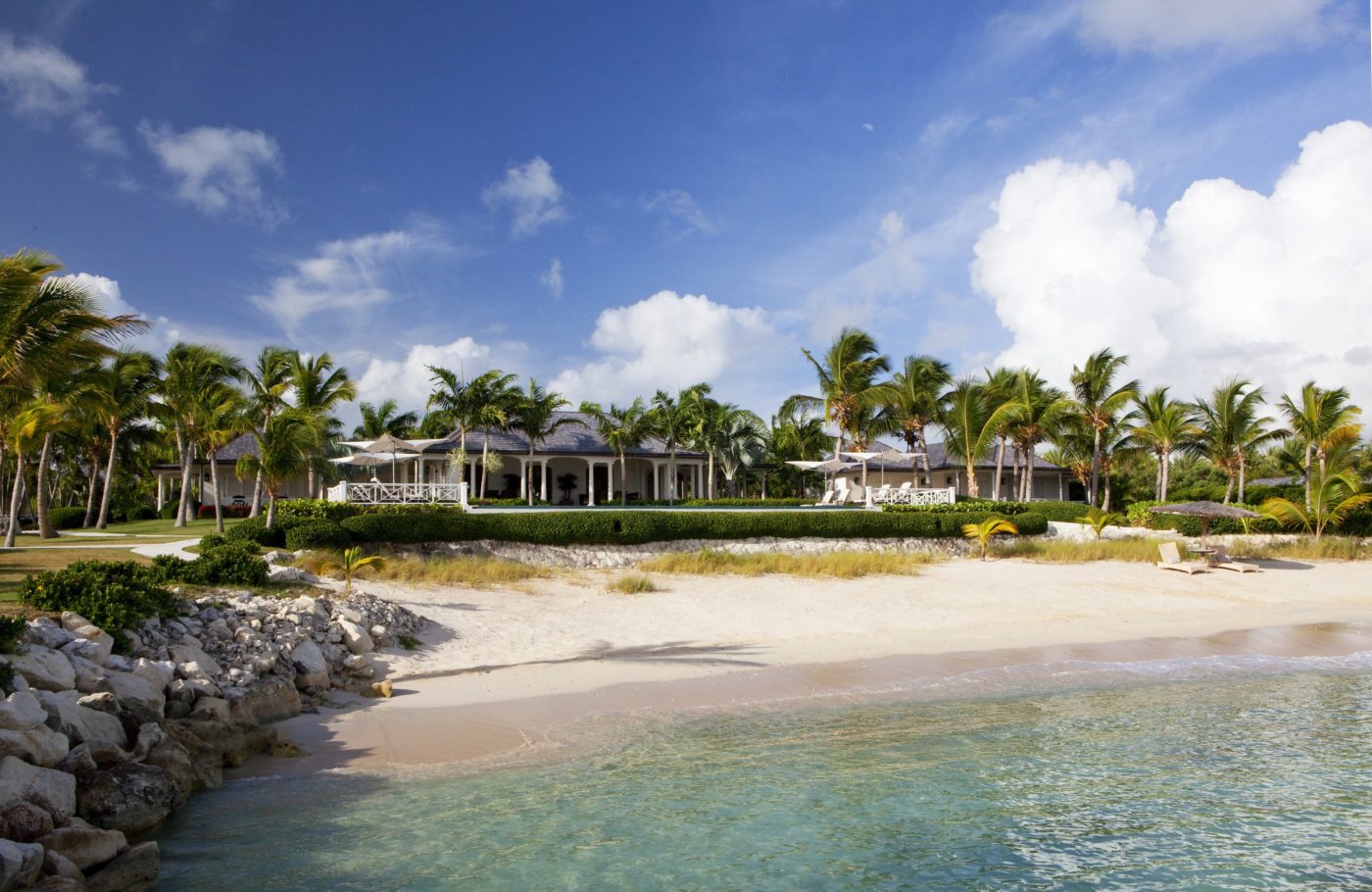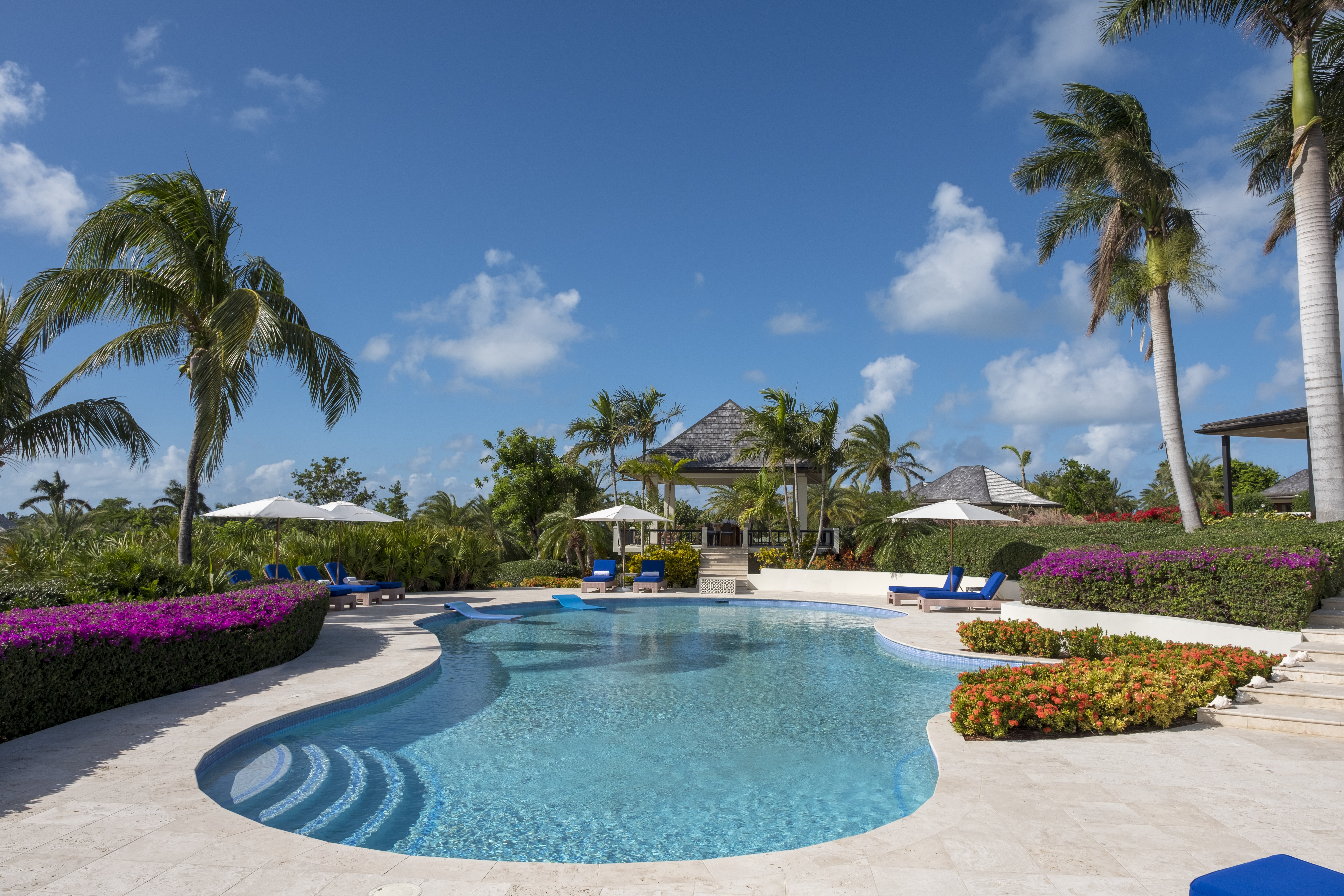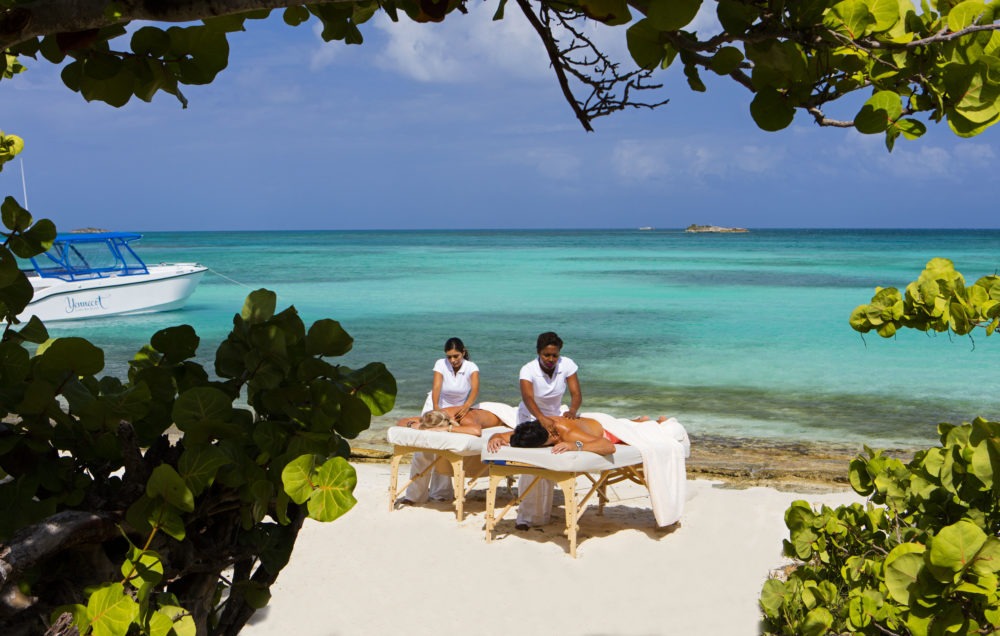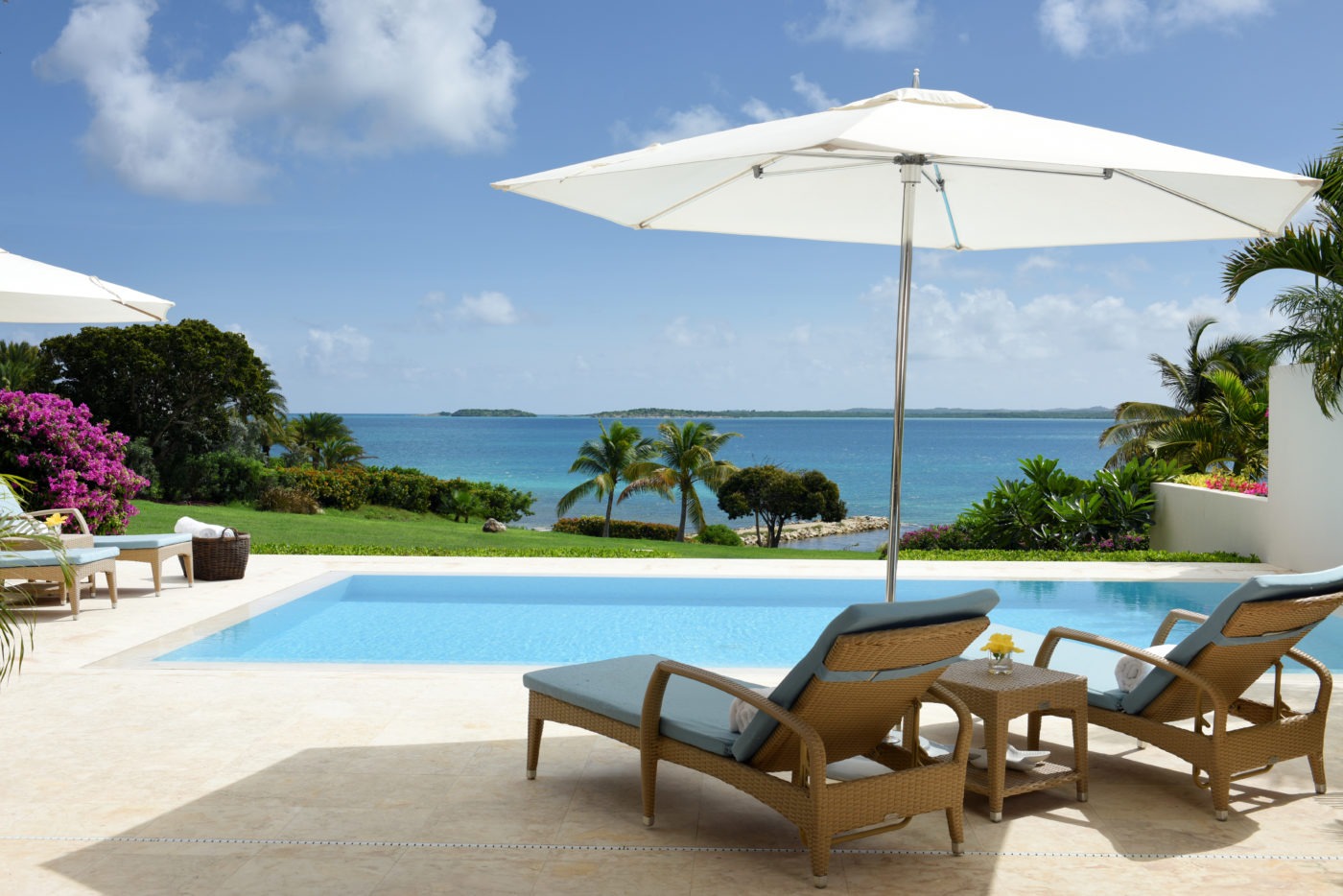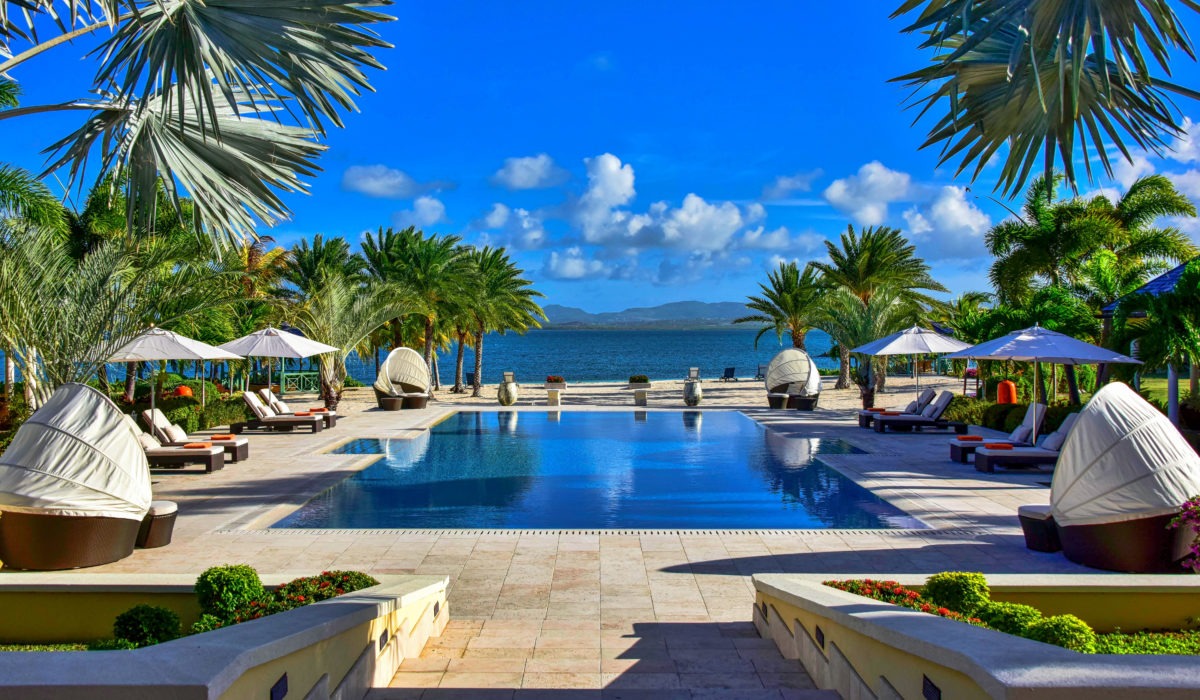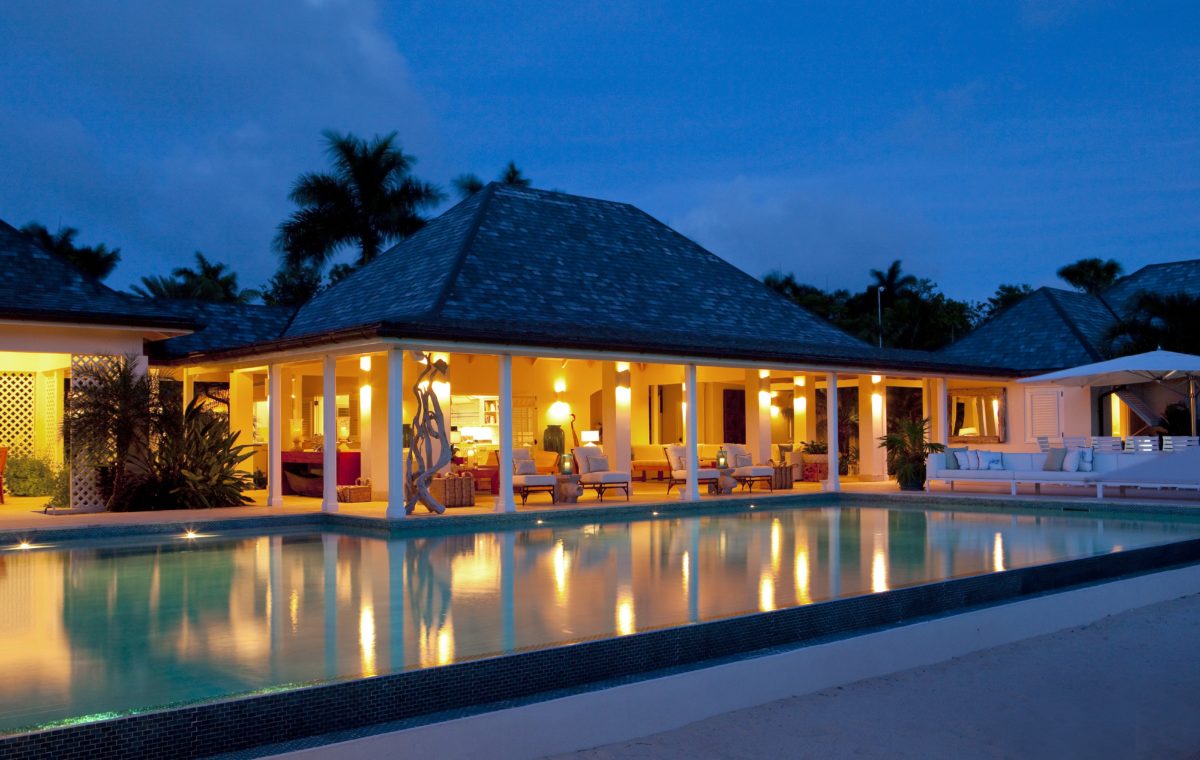A private island paradise
Set in one of the most beautiful, undisturbed places in the world, Jumby Bay, A Rosewood Resort is an island of simple pleasures. Reachable only by boat, and with no cars in sight, this private isle of white-powdered beaches and winding bicycle paths is a one-of-a-kind hideaway known, quite simply, as the finest resort in the Caribbean.
Since its discovery by Christopher Columbus in 1493, this isolated island of elemental beauty has enchanted seafarers, naturalists, and romantics. Today it is known as Jumby Bay (named after the Antiguan word jumbee, meaning playful spirit), a retreat of rarefied yet relaxed luxury that’s just a six-minute boat ride from the coast of Antigua and yet worlds away from the crowds of the Caribbean.
It may be for its postcard-perfect beaches, lapped by clean, crystalline waters. Or for its rich biodiversity, including one of the world’s primary preserves for hawksbill sea turtles. Or for its intimate, private setting of 300 acres — with no cars, beach vendors or jet skis. Whatever the draw, Jumby Bay is the stuff of dreams.
With no hint of urban intrusions, and no indigenous population, this privately owned hideaway has remained largely unchanged for centuries. Nowadays, the entire island — which comprises of just 40 exquisitely appointed guest room and suites and a collection of villas and estate homes — may as well wear a “Do Not Disturb” sign.
The Spirit of Jumby Bay
Today, the island and all its assets belong entirely to a passionately committed group of homeowners who ensure the island continues to remain an undisturbed, secluded hideaway. As a result, Jumby Bay Island is home to one of the richest island ecologies in the world.
In an effort to preserve and showcase its natural beauty, Jumby Bay remains staunchly devoted to its sustainability program, carrying out several initiatives that preserve its environment and indigenous species – the endangered Hawksbill Turtle, the White Egret and the Persian Black-Headed Sheep. Among these initiatives is a recycling program that has made Jumby Bay Island the largest recycler of bottles, cans and golf cart batteries on Antigua. Supplemental efforts are made to reuse all bi-products of island life. Sewage water is purified and stored in a central tank for plant irrigation, while all yard cuttings, including grass, leaves, branches and general foliage are chipped and turned into mulch and compost for landscaping on the island.
The effort to conserve is shared by all home and villa owners who must install solar water heating systems and cisterns to collect roof water for irrigation. Jumby Bay guests are also invited to participate in these environmental activities through the Hawksbill Turtle Preservation Program, which is the longest running, privately funded project of its kind, focused on the scientific study of the survival and recovery of the indigenous Hawksbill Turtle.
Cars are not allowed on the island, therefore, Jumby Bay visitors navigate by bicycle, allowing guests to appreciate all that the enchanting island has to offer, and creating a community unlike any other.
Thanks to numerous conservation projects – the Hawksbill Turtle Program, the island’s native plant nursery, rainwater collection and irrigation, sun-powered water heating and protected coral reefs – Jumby Bay Island is being preserved for future islanders.
Island Wildlife And Conservation
Hawksbill Turtle Project
Jumby Bay Island is home to the Jumby Bay Hawksbill Turtle Project – the longest running privately funded project of its kind. This preservation program focuses on the scientific study of the endangered Hawksbill Turtle, and works to ensure their survival and recovery.
The beaches of Jumby Bay have long been a haven for nesting Hawksbills who seek isolation on this secluded, private island. From June to November, the Jumby Bay Hawksbill Turtle Project monitors nesting activities on Pasture Bay Beach – the most sheltered, undeveloped beach on Jumby Bay – as well as smaller, adjacent beaches on the island. Since its inception in 1987, the Jumby Bay Hawksbill Turtle Project has become a global leader in illustrating how wise development practices, and marine conservation, can successfully co-exist.
Wildlife Sanctuary
Jumby Bay is a refuge for wildlife, but few things symbolize the gentle spirit of the island more than the distinctive, Black-Headed Persian Sheep. These unique creatures arrived to Jumby Bay Island when Christopher Columbus discovered it more than 400 years ago. Free to roam, graze and sleep on the 300 acres of natural, undisturbed pastures, the down-to-earth and unhurried nature of these animals contributes to the tranquil pace of the island, and brings a smile to all who pass by them.
Not to be overlooked is a stunning Waterfowl Sanctuary that sits at the heart of the island. Home to a rare mix of tropical birds – the White Egret, Bananaquit, Whistling Duck, Hummingbird and Blue Pelican – this reserve is consistently maintained to ensure its delicate ecosystem remains intact.


